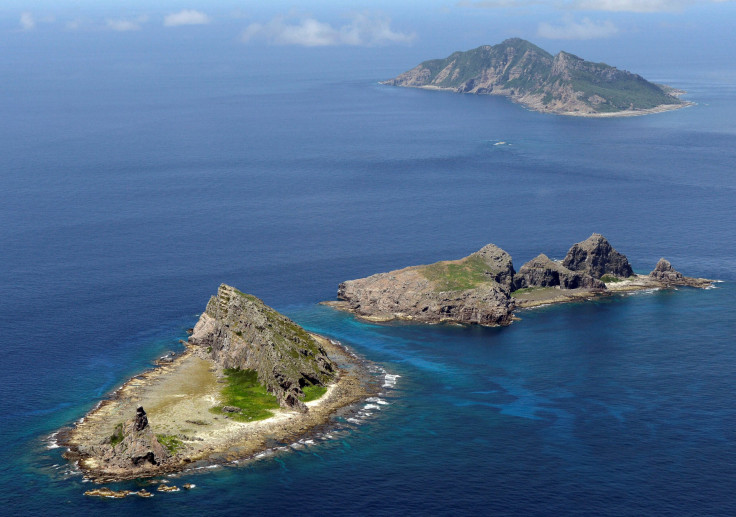China Warns Japan Against Getting Close To US To Contain Beijing Amid Taiwan Tensions
KEY POINTS
- Japan is moving in the wrong direction, following the US: China
- Japan fears China would invade the Senkaku Islands to conquer Taiwan
- Japan is heavily dependent on the U.S. for its security
Amid tensions with Taiwan, China said that it does not pose a threat to Japan but warned Tokyo against getting close to Washington in an effort to contain Beijing.
This comes at a time when China and Japan mark the 50th anniversary of the normalization of their diplomatic relations and a decade since Tokyo nationalized the long-disputed Senkaku/Diaoyu Islands, angering Beijing.
In a video address at an event held Monday to commemorate the normalization of diplomatic relations, the Chinese Foreign Minister, Wang Yi said, China and Japan are partners and pose no threat to each other. With "some historic issues and the Taiwan question," there is no room for "ambiguity" or "retrogression," he added.
"The two countries should, in a strategic and long-term perspective, stay committed to the important consensus that they are partners and pose no threat to each other," the Chinese foreign minister further said.
Tensions between the two countries persist because "Japan is moving toward a wrong direction to follow the US" in an attempt to contain China on some sensitive issues, Global Times reported.
At the root of Japan and China flare-ups, is a long-running territorial dispute over a group of uninhabited islands in the East China Sea known as the Senkaku Islands in Japan, Diaoyu Islands in China, and Tiaoyutai Islands in Taiwan. The group of islands has been administered by Japan since 1972 but is claimed by both China and Taiwan as part of their territory.
The islands, which lie to the northeast of Taiwan, are economically significant as they contain oil and natural gas reserves and are near prominent shipping routes surrounded by rich fishing areas.
Japan is worried about China invading the Senkaku Islands as part of its efforts to conquer Taiwan, a self-ruled democracy that Beijing considers its own to be reunified with the mainland, by force if necessary.
In September 2012, the Japanese government nationalized the islands, after buying three islands of the Senkaku group from their private Japanese owners. China opposed the nationalization move, saying that it grossly violated Beijing's territorial sovereignty.
Following the nationalization, in November 2013, China announced it would establish an "East China Sea Air Defense Identification Zone (ADIZ)," covering a large swath of airspace over the East China Sea, including the Senkaku/Diaoyu Islands, warning that it would use force against aircraft that did not follow its ADIZ guidelines.
Japan is heavily dependent on the U.S. for its security. Although Washington has remained neutral about the status of the islands, the U.S. has clarified it is covered by the 1960 Japan-U.S. security pact, leading many observers to fear a military clash, especially one that could draw in the U.S.
In an effort to boost Beijing's claim over the island region, China Coast Guard vessels have been repeatedly intruding into the territorial waters claimed by Japan around the Senkaku Islands.
In June, two Chinese coast guard ships had navigated into Japan's territorial waters near the islands and remained there for more than 64 hours to surveil a Japanese fishing boat that was operating in the area.

© Copyright IBTimes 2024. All rights reserved.





















